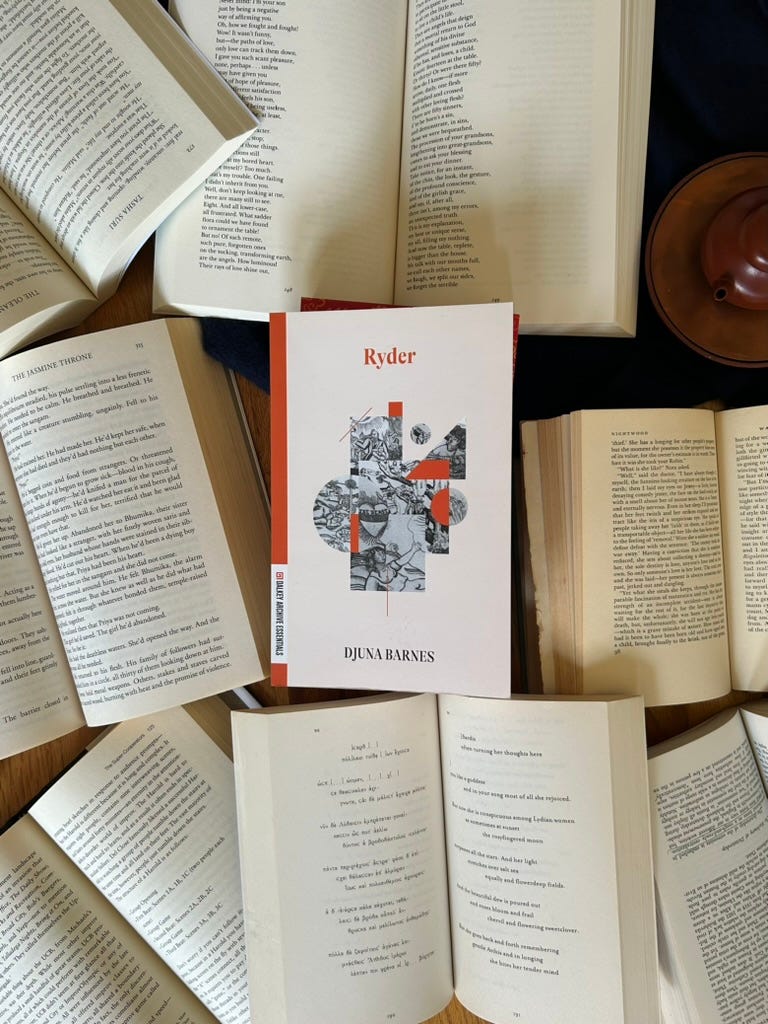This is my third book by Djuna Barnes, and it so unlike the previous two, so unlike anything I’ve read before that it feels like it was written by someone superhuman. It’s a strange story, based on Barnes’ family history, and her own strange, traumatic childhood. Wendell Ryder is a clear stand-in for her polygamous father, the way he uses his female partners, Amelia and Kate-Careless clearly tells of Barnes’ frustrations with her own Barnes’ father Walt, and his relationships with Elizabeth (Barnes’ mother and Wald’s first wife), and Kate Careless is a stand-in for Wald’s first girlfriend and second wife Fanny. Barnes’ choice of name should tell you something of her opinion. The chapter that is a defiant, angry cry against the rape of a young women is perhaps one of the best fictional essays on rape I’ve read (and I’ve read a lot of essays, articles, and books on the topic because it’s something I care deeply about).
It is a cry against the small and large ways in which women are oppre…




